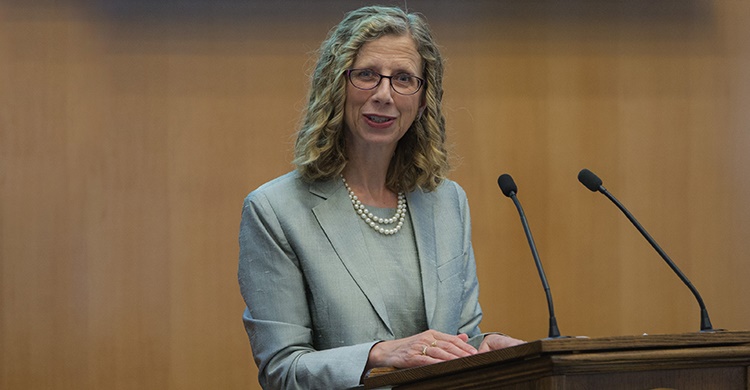The Green Climate Fund (GCF) has approved over $120 million in new funding to strengthen climate resilience in Ghana, the Maldives, and Mauritania. At the request of the three countries, the UN Environment Programme (UNEP) developed these projects to help vulnerable communities anticipate and adapt to increasingly severe impacts of climate change through nature-based solutions, climate-resilient agriculture, early warning systems and improved water security.

Henry Gonzalez, Chief Investment Officer of the GCF, said: “The approval of these projects demonstrates how GCF is supporting country ownership of national climate action priorities in Ghana, Maldives, and Mauritania. These investments will positively impact key areas of climate resilience in all three countries.”
The initiatives are a major step forward in deploying adaptation finance where it is most needed — particularly in Small Island Developing States (SIDS) and the Sahel region. They are expected to benefit more than 3.5 million people.
“These new projects reflect UNEP’s deep commitment to supporting countries on the frontlines of climate change,” said Martin Krause, Director of UNEP’s Climate Change Division. “Our focus is on contextualizing climate solutions to the benefit of the most vulnerable nations and communities with tailored, locally led, and science-based solutions.”
Ghana
Northern Ghana faces increasingly erratic rainfall and long dry seasons that have led to chronic food shortages, drying water bodies, and the destruction of infrastructure from flooding. Smallholder farmers, reliant on rainfed subsistence agriculture, are especially vulnerable. High temperatures reduce the land’s water-retention capacity, and extreme rain events risk dam collapse and downstream flooding.
In response, the new $70 million project – including a $63 million GCF grant – aims to build the resilience of agroecosystems and rural livelihoods. The initiative will support 120 communities across eight districts in the North East, Upper East, and Upper West regions. Activities include improving access to climate data and early warnings, enabling dry season farming through water storage solutions, and restoring 28,000 hectares of degraded land to improve soil health, improve water retention and reduce flood risks.
Implemented by the Government of Ghana through the Environmental Protection Agency and Ghana Meteorological Agency, the project will benefit 619,000 people directly, while early warning alerts will reach up to 2.9 million people. Around 120,000 individuals will experience improved food security as a result of climate-resilient farming practices.
Maldives
Maldives is the world’s most exposed country to climate change. Comprising 1,192 islands, nearly 80% of which lie less than one meter above sea level, Maldives faces the constant threat from rising sea levels. In addition to rising seas, the country is vulnerable to more frequent and severe storm surges, floods, heatwaves, coastal erosion, and other hazards exacerbated by climate change. These hazards are already disrupting critical economic sectors such as agriculture, fisheries and tourism, affecting the entire population of Maldives. The poorest, most marginalised and remote communities, and women and children are particularly susceptible.
To strengthen the country’s ability to adapt to these threats and reduce vulnerability to climate change, UNEP, in coordination with several national and international partners, developed the project, Toward Risk-Aware and Climate-Resilient Communities (TRACT) – Strengthening Climate Services and Impact-Based Multi-Hazard Early Warning in the Maldives.
The $25 million project – expected to benefit more than half a million people – will be implemented over five years under the lead of UNEP. It aligns with the goal of the Early Warnings for All initiative (EW4All) to ensure that everyone on Earth is protected from hazardous climate events through early warning systems by 2027 and it will deliver on the Maldives’ roadmap to achieve the EW4All Initiative, developed by the Government of Maldives and international partners to guide the scaling up of early warning systems in the country.
Mauritania
In the fragile zone between the Sahara and Sahel, prolonged droughts, sand encroachment, and water scarcity are threatening lives and livelihoods. Mauritania has seen accelerating dune movement, siltation of water sources, and growing pressure on socio-economic infrastructure such as roads and schools. Agricultural output remains extremely low, with the country importing up to 85% of its food.
With a $33 million investment — including a $30 million GCF grant – the new UNEP project will restore ecosystems and secure livelihoods in four vulnerable hubs: Aoujeft, Rachid, Tamcheket, and Nema. It will support green-grey infrastructure to fix dunes and control sand encroachment, improve access to water for farming and land rehabilitation, and scale up climate-resilient agriculture to boost food security and incomes.
Led by Mauritania’s Ministry of Environment and Sustainable Development, the project will directly benefit 85,000 people and improve resilience for 145,000 more. It will also protect 2,100 hectares of land and support the country’s contributions to the Great Green Wall – a multilateral African initiative to combat desertification and build climate resilience across the continent.
